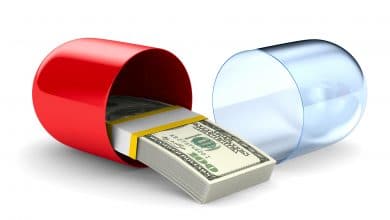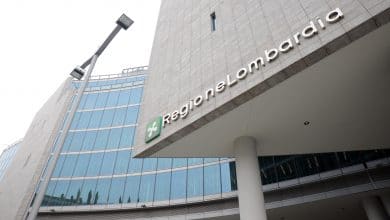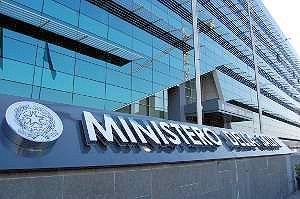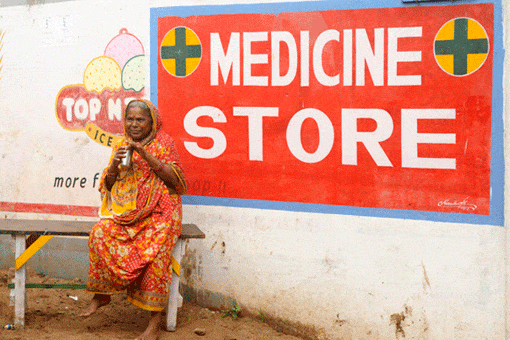
Every year, many people rely on cheap treatments. But especially online scams are growing. It happens that the decision to put precedence criteria in access to therapies pushes excluded patients to book a ticket for a trip abroad. In the US, the drug for hepatitis C costs 84,000 dollars. In Egypt only a few hundred euros

New hepatitis C drugs offer a case in point. Gilead initially offered its sofosbuvir to the US for over 84,000 dollars for a 12-month treatment. In Europe, the starting figure was first halved, then agreements were made with new discounts. In Egypt, however, the medicine can be bought for a few hundred euros. In Italy it is expected to finish treating the 50,000 patients in the worst conditions by the summer, spending 750 million euros. But there are many more patients, so someone even if they don't have an advanced stage of the disease goes towards the low cost drug. Ivan Gardini is president of the EpaC patient association: «At least 10 of our members have gone to India or Egypt. They brought the Italian recipe with them but someone even visited an Indian hospital. The cost is around 1,500 euros per therapy. They are people who don't want to wait for the disease to get worse. A solution must be found: all this could happen tomorrow due to tumors or diabetes ». Innovative medicines are increasingly expensive and there really is a risk that the national health systems will not be able to bear the expense to purchase them. They would be forced to choose with increasingly stringent criteria who to give them to, fueling other displacements. Industry is also implicated, given the profits. It is estimated that Gilead alone in 2015 had a turnover of 19 billion dollars in anti-hepatitis products.
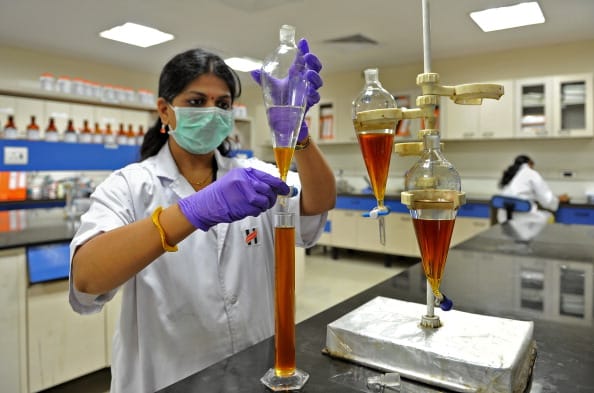 Fundamental for the treatment of millions of people in the third world is the survival of the "pharmacy of developing countries", ie India, home of low-cost drugs. Doctors Without Borders has launched a campaign against the pressure exerted by the US to change Indian policies on intellectual property: "Millions of people could lose the possibility of using affordable medicines". The country has legislation that allows for the natural expiration of patents not to be respected if there are public health needs. Furthermore, as Silvia Mancini, an MSF epidemiologist, explains, "they imposed the patenting and placing on their market of only truly innovative medicines. As we know, evergreen drugs are created in the West, that is, interventions are made at the expiry of the patent to "refresh" molecules with small modifications. So the prices remain high. In India this is not allowed and costs are greatly reduced, focusing on the competitiveness of generics. Thus, for example, in 10 years the cost of some molecules for HIV has gone from 10,000 to 100 dollars per patient». With regard to generics, they have also been widespread here for many years and can be considered low cost: they cost less and have led to lowering the price of "branded" ones with expired patents. Those who use them want to save money and yet there remains a hard core of citizens among whom these equivalent medicines do not make it. And so every year Italians spend the beauty of 1 billion euros out of their own pockets to pay the difference between the cost of the generic and that of the branded drug, which is not reimbursed by the health system. There are those who flee Italy to find low-cost drugs and those who snub what they have at home.
Fundamental for the treatment of millions of people in the third world is the survival of the "pharmacy of developing countries", ie India, home of low-cost drugs. Doctors Without Borders has launched a campaign against the pressure exerted by the US to change Indian policies on intellectual property: "Millions of people could lose the possibility of using affordable medicines". The country has legislation that allows for the natural expiration of patents not to be respected if there are public health needs. Furthermore, as Silvia Mancini, an MSF epidemiologist, explains, "they imposed the patenting and placing on their market of only truly innovative medicines. As we know, evergreen drugs are created in the West, that is, interventions are made at the expiry of the patent to "refresh" molecules with small modifications. So the prices remain high. In India this is not allowed and costs are greatly reduced, focusing on the competitiveness of generics. Thus, for example, in 10 years the cost of some molecules for HIV has gone from 10,000 to 100 dollars per patient». With regard to generics, they have also been widespread here for many years and can be considered low cost: they cost less and have led to lowering the price of "branded" ones with expired patents. Those who use them want to save money and yet there remains a hard core of citizens among whom these equivalent medicines do not make it. And so every year Italians spend the beauty of 1 billion euros out of their own pockets to pay the difference between the cost of the generic and that of the branded drug, which is not reimbursed by the health system. There are those who flee Italy to find low-cost drugs and those who snub what they have at home.
In the US, hepatitis C treatment costs 84,000 dollars. In Egypt only a few hundred euros
 It is the only hope for those who want access to treatment for the poorest on the planet but also for those looking for medicines that are impossible to obtain in their country and finally, more simply, for those who need to save money without leaving the pharmacy at home. In the globalized market of Big Pharma, the low-cost medicine strenuously resists the ever stronger push towards business, even if it finds its origin precisely in this phenomenon. In fact, one of the postulates of the economic system created by the big industries foresees that the price of each medicine is different according to the country where it is marketed. A molecule in the US can cost a little more than in Europe, where there are different tariffs in each country, and enormously more than in North Africa or India. "Of course, if the pharmaceutical companies used price lists comparable to ours on those markets, they would not collect anything," explains Silvio Garattini of the Mario Negri Institute. We try to get the maximum possible from each State, never mind if this mechanism reveals how high the profit margins are.
It is the only hope for those who want access to treatment for the poorest on the planet but also for those looking for medicines that are impossible to obtain in their country and finally, more simply, for those who need to save money without leaving the pharmacy at home. In the globalized market of Big Pharma, the low-cost medicine strenuously resists the ever stronger push towards business, even if it finds its origin precisely in this phenomenon. In fact, one of the postulates of the economic system created by the big industries foresees that the price of each medicine is different according to the country where it is marketed. A molecule in the US can cost a little more than in Europe, where there are different tariffs in each country, and enormously more than in North Africa or India. "Of course, if the pharmaceutical companies used price lists comparable to ours on those markets, they would not collect anything," explains Silvio Garattini of the Mario Negri Institute. We try to get the maximum possible from each State, never mind if this mechanism reveals how high the profit margins are.
Also for this system, those who need a cure but cannot get it from us move. Impossible to have the data of how many every year go on the hunt for the low-cost tablet. These are people who sometimes also risk running into counterfeit and therefore very dangerous medicines. And in fact, in many cases, spending less means taking a risk, even and above all if you don't travel from home but turn to the online channel, where pharmaceutical counterfeiting is in the hands of criminal organizations, given the turnover it ensures.
Related news: Hepatitis C: the cure will come for everyone, it's just a matter of time
Innovative high-cost drugs, the issue is now being dealt with by the UN
Intellectual property rights and health in poor countries
Intellectual property and pharmaceutical industry
Research has a cost that someone has to pay
In India or Egypt for anti-hepatitis C super cures, "journeys of hope" are growing
India, Novartis loses the case: yes to the low-cost anti-cancer drug

